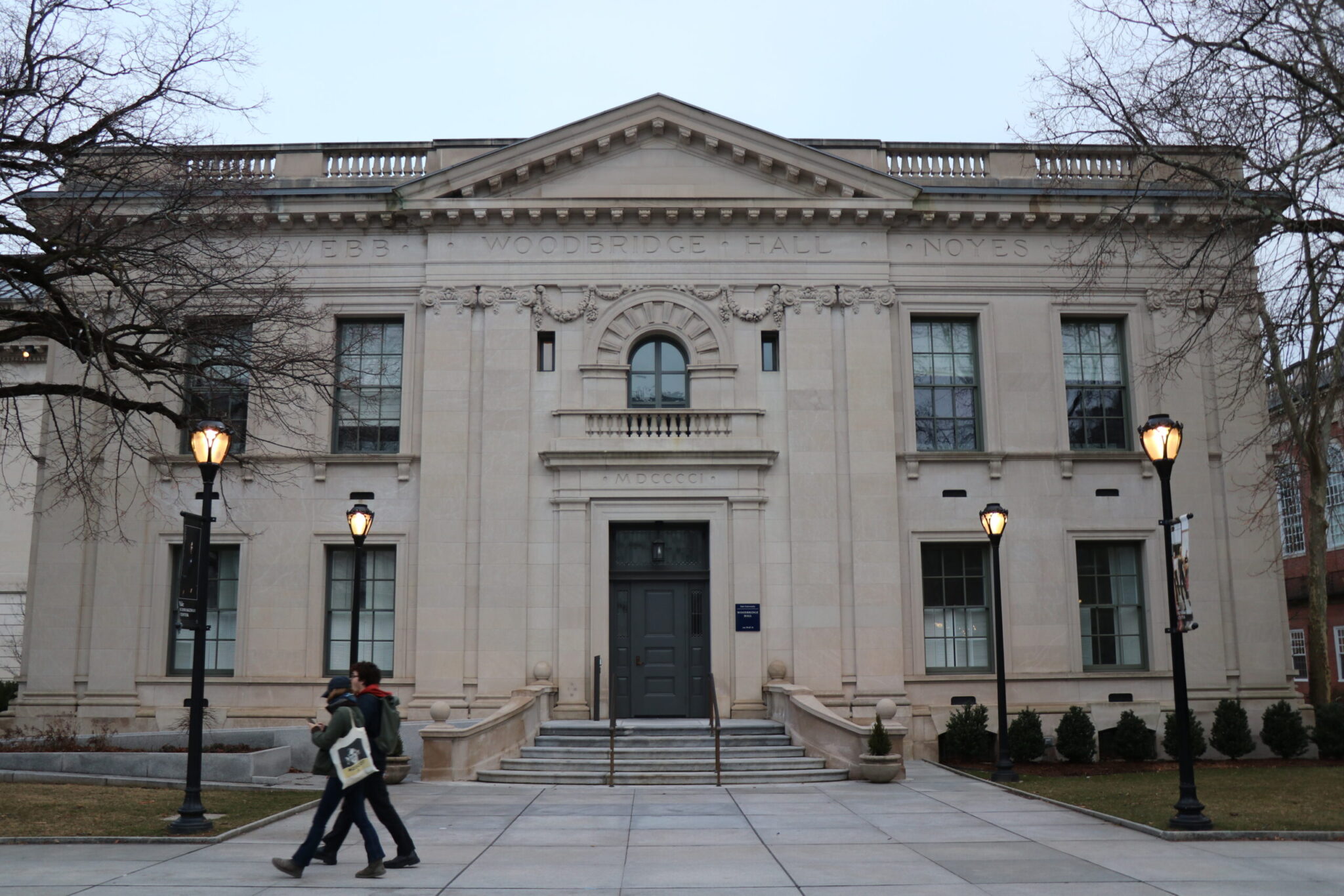Yale pledges $10 million to strengthen partnership with HBCUs, faces NAACP criticism
The University released a report last month acknowledging and apologizing for its ties to slavery, coupled with a set of proposed actions; Connecticut State Conference of the NAACP, however, criticized Yale’s initiative as well as the book published alongside the apology.

Christina Lee, Photography Editor
Yale has pledged $10 million toward an initiative that will strengthen its relationship with Historically Black Colleges and Universities, according to a Tuesday email to faculty.
Over the next five years, Yale will commit $2 million annually to establish the Alliance for Scholarship, Collaboration, Engagement, Networking and Development, or ASCEND. The initiative will support research partnerships between faculty at Yale and at historically Black colleges and universities — or HBCUs — and seek to expand the presence of HBCU graduates in the University’s existing programs.
Tuesday’s announcement comes two weeks after University President Peter Salovey and Senior Trustee of the Yale Corporation Joshua Bekenstein ’80 issued a formal apology for Yale’s ties to slavery. The University concurrently released findings from the Yale and Slavery Research Project and announced a plan to expand research fellowships with historically Black colleges and universities, noting that unspecified “significant” new investments would be announced in the following weeks.
But Tuesday’s announcement also comes after the NAACP Connecticut State Conference volleyed criticism against the University’s Feb. 16 apology.
In a Feb. 29 statement to the News, Connecticut NAACP President Scot X. Esdaile largely took aim at Yale’s copyright ownership over David Blight’s book “Yale and Slavery: A History,” which was published alongside Yale’s apology announcement. Esdaile further criticized Blight’s book for not including information about Yale’s historical ties to eugenics.
“This is a whitewashed version of the story, and I think that Black historians, Black civil rights activists, Black leaders and Black educators need to come together and tell the real story,” Esdaile told the News in an interview on Tuesday. “I’m not trying to disrespect, but I think that the constructive criticism should be there … by putting in $10 million for students to come back to Yale, how does that help our community?”
The newly-announced ASCEND initiative will support faculty collaboration grants and teaching fellowships for Yale and HBCU faculty who create a “collaborative teaching arrangement” or “joint course experiences.” The initiative will also sponsor faculty research fellowships for HBCU faculty members who wish to pursue research opportunities at Yale.
Additionally, the University is looking to expand its Summer Undergraduate Research Fellowship program, an eight-week program designed for undergraduate students from HBCUs to learn more about pursuing a Ph.D. According to the announcement, Yale will also increase the number of HBCU graduates participating in the University’s post-baccalaureate programs.
When asked about Yale’s pledge announcement on Tuesday, Esdaile referred to the failed attempt in 1831 by New Haveners to establish what would have been America’s first Black college.
“We were supposed to have our own HBCU that benefited Black people … making Yale a more powerful institution doesn’t help our community,” Esdaile said. “This is a step in the right direction, but I think that [Yale] has so much more that it needs to do.”
Esdaile further said that by maintaining copyright ownership over Blight’s book, the University is “executing a power dynamic that benefits the institution at the expense of marginalized communities.”
When asked about Esdaile’s concerns about the “motives and intentions” of Yale’s copyright ownership the University spokesperson responded that proceeds from the book will go toward funding future projects at the Yale Gilder Lehrman Center for the Study of Slavery, Resistance, and Abolition. The spokesperson added that the book is available online for free and that the University has also donated copies of the book to local libraries.
Esdaile also raised concerns about the book’s lack of mention of Yale’s historical connections to eugenics. The American Eugenics Society was founded on Yale’s campus at 185 Church St. in 1926 by economics professor Irving Fisher and was run largely by Yale faculty.
By not including this history, Esdaile wrote in his Feb. 29 statement that the book “undermines any real efforts toward reconciliation and real justice.”
Blight previously told the News that he decided to conclude the book in 1915 at the unveiling of the Civil War Memorial because the monument marks “the end of the concern over slavery directly.” The memorial, located between the Schwarzman Center and Woolsey Hall, honors the lives of soldiers on both sides of the Civil War but makes no mention of slavery.
Blight added that the Yale and Slavery Working Group had “great plans” to continue the narrative until the 1930s but that “the book got too long.”
Esdaile told the News that Blight, on the day of the book’s release, told him that the reason eugenics was excluded from the book was because his colleague “was sick.”
In an email to the News on Tuesday, Blight wrote that he told Esdaile the initial plan was to continue the book until the 1930s and “therefore cover the eugenics story fully” but that the leading researcher on that project “had an illness and we ran into fierce deadlines.” Blight added that, if written, a second volume might “indeed” cover eugenics.
The University currently holds partnerships with five HBCUs, including Claflin University, Hampton University, Morgan State University, North Carolina A&T State University and Tuskegee University.
Yolanda Wang contributed reporting







